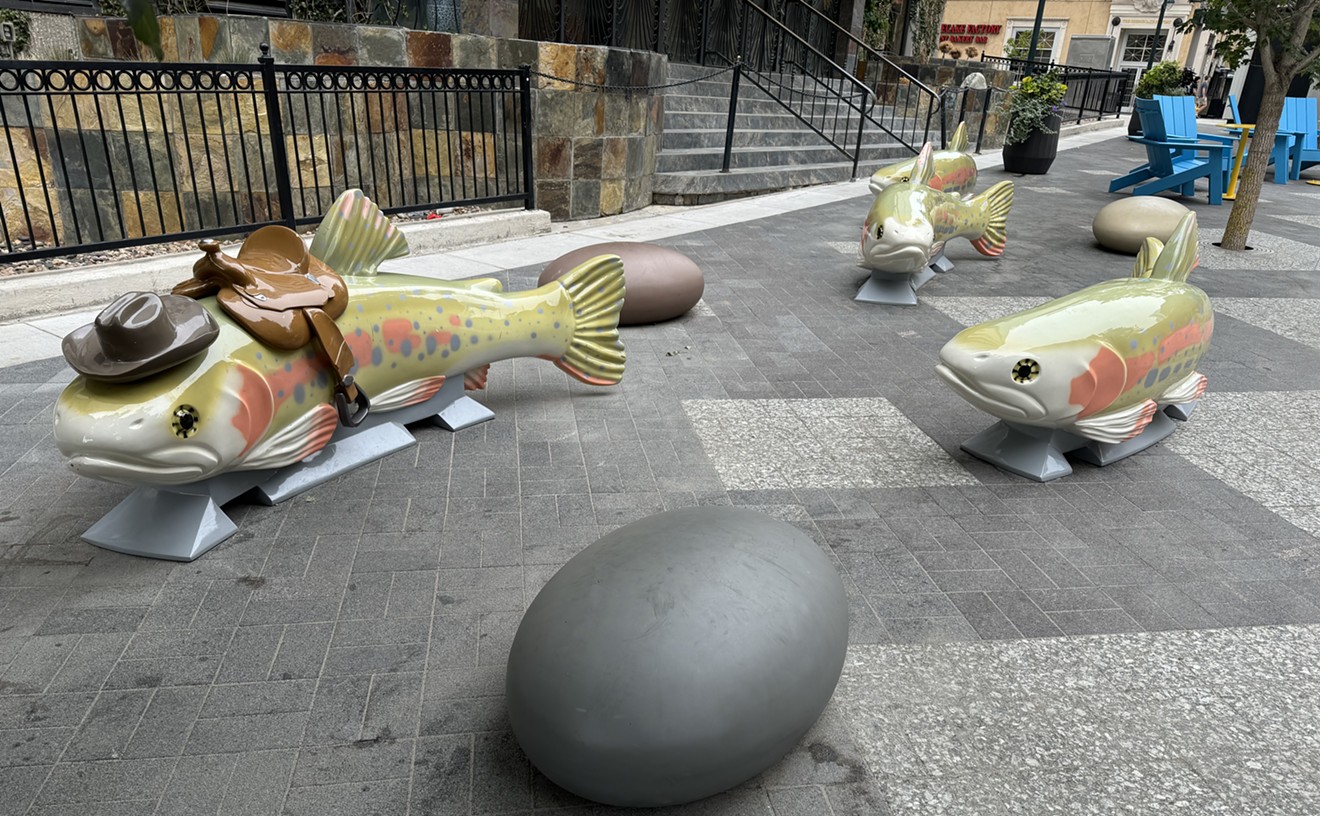The owners of Denver's Park Hill Golf Course have been ordered to reimburse hundreds of thousands of dollars to nonprofit Sisters of Color United for Education for renovating the defunct golf course's clubhouse over three years ago.
Sisters of Color leased the clubhouse to use as a community center, but the building was dilapidated, suffering from mold, rodents and insect infestations, according to court records. In February 2021, the nonprofit entered a three-year agreement with ownership to fix up the clubhouse in lieu of paying rent. According to Sisters of Color, the group spent over $196,000 on cleanup, plumbing repairs, electrical installation and other upgrades.
When the renovations were nearly finished that June, Sisters of Color was told it couldn't use the clubhouse for an event because it was already booked by another organization. They were again denied access in August. Lease re-negotiations eventually crumbled, with ownership demanding that it be able to use and control the renovated clubhouse space around half of the time, according to court records.
The Colorado Court of Appeals ruled in favor of Sisters of Color on September 19, mandating that the course's owners, Westside Investment Partners and the Holleran Group, pay the nonprofit $258,862, with $196,157 for renovation expenses, $36,903 in interest and $25,802 in court costs.
"For far too long, marginalized communities have been abused, swindled and disregarded by corporate entities that don't have our best interest in mind," says Adrienna Corrales Lujan, executive director of Sisters of Color, "but this case proves that when we stand firm in our values, we can achieve real change."
Sisters of Color sued Westside and Holleran in Denver District Court in May 2022. The court awarded the nonprofit $196,157, though Westside and Holleran challenged the ruling, landing the case in the Colorado Court of Appeals.
This is the latest update in a messy legal battle, which included Westside and Holleran trying to block Sisters of Color from publicly sharing testimony from the case and Sisters of Color at one point requesting the foreclosure of the Park Hill Golf Course to receive payment.
"It’s been a hard fight to get justice against those who sought to victimize Sisters of Color, but justice did prevail," says Aaron Boschee, the attorney representing Sisters of Color. "The Courts held Westside and Holleran accountable for their predatory behavior. [They] tried to bully a small minority woman-run nonprofit out of virtually all of its funds while acting like they had the interests of the Park Hill community in mind."
Dennis Polk, an attorney representing Westside and Holleran in the case, declined to comment on the ruling.
The appeals ruling is yet another blow to the owners of the defunct Park Hill Golf Course. Westside purchased the property in 2019 after the course had closed with plans to develop the 155 acres of land, but voters rejected a ballot measure to lift a conservation easement in 2023. Today, the golf course is still not in use and the property, including the clubhouse, is fenced off.
The legal battle may not have helped ownership's case with Denver voters: A deposition from the lawsuit revealed that billionaire and accused tax evader Robert Smith was involved in the golf course development project. Critics used the case as a whole to argue that the developers were untrustworthy for going back on their agreement with Sisters of Color.
"This win is not just about a legal outcome — it’s a testament to the strength of grassroots movements and the power of collective action," Corrales Lujan says.
Sisters of Color is a Denver community organization founded in 1989 to promote health, wellness and education, and to provide health and wellness services to marginalized communities.
Corrales Lujan says the group will use the money from the lawsuit to expand their community programs and spaces.

Audio By Carbonatix
[
{
"name": "Air - MediumRectangle - Inline Content - Mobile Display Size",
"component": "12017618",
"insertPoint": "2",
"requiredCountToDisplay": "2",
"watchElement": ".fdn-content-body",
"astAdList": [
{
"adType": "rectangle",
"displayTargets": "mobile"
}
]
},{
"name": "Editor Picks",
"component": "17242653",
"insertPoint": "4",
"requiredCountToDisplay": "1",
"watchElement": ".fdn-content-body",
"astAdList": [
{
"adType": "rectangleLeft",
"displayTargets": "desktop|tablet"
},{
"adType": "rectangleRight",
"displayTargets": "desktop|tablet|mobile"
}
]
},{
"name": "Inline Links",
"component": "18838239",
"insertPoint": "8th",
"startingPoint": 8,
"requiredCountToDisplay": "7",
"maxInsertions": 25
},{
"name": "Air - MediumRectangle - Combo - Inline Content",
"component": "17261320",
"insertPoint": "8th",
"startingPoint": 8,
"requiredCountToDisplay": "7",
"maxInsertions": 25,
"watchElement": ".fdn-content-body",
"astAdList": [
{
"adType": "rectangleLeft",
"displayTargets": "desktop|tablet"
},{
"adType": "rectangleRight",
"displayTargets": "desktop|tablet|mobile"
}
]
},{
"name": "Inline Links",
"component": "18838239",
"insertPoint": "8th",
"startingPoint": 12,
"requiredCountToDisplay": "11",
"maxInsertions": 25
},{
"name": "Air - Leaderboard Tower - Combo - Inline Content",
"component": "17261321",
"insertPoint": "8th",
"startingPoint": 12,
"requiredCountToDisplay": "11",
"maxInsertions": 25,
"watchElement": ".fdn-content-body",
"astAdList": [
{
"adType": "leaderboardInlineContent",
"displayTargets": "desktop|tablet"
},{
"adType": "tower",
"displayTargets": "mobile"
}
]
}
]













